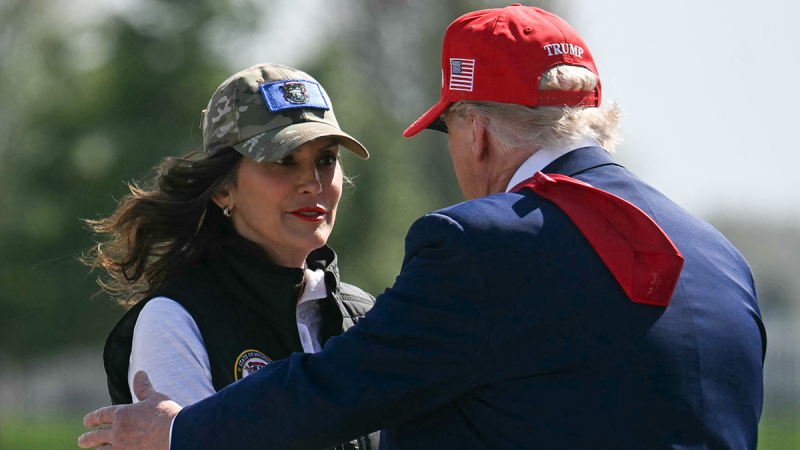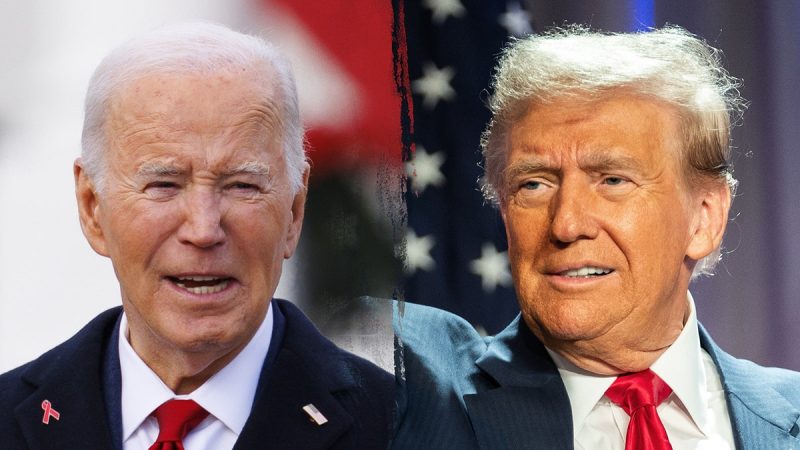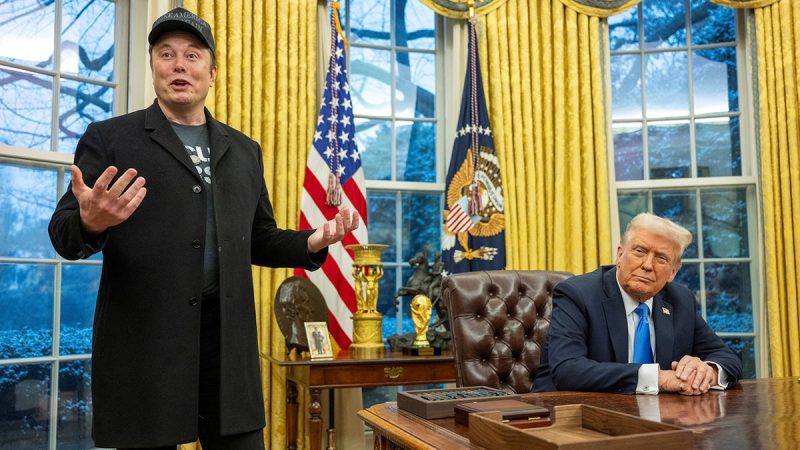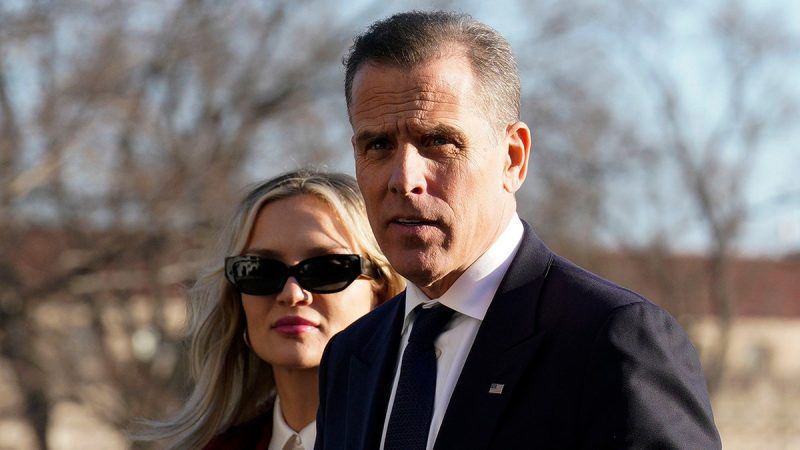
Gov. Gretchen Whitmer, D-Mich., said the United States is in a ‘constitutional crisis’ after appearing alongside President Donald Trump in Michigan on his 100th day as president.
Jon Favreau, former President Barack Obama’s speechwriter turned ‘Pod Save America’ host, asked Whitmer in a social media clip posted Wednesday if the U.S. is in a ‘constitutional crisis’ – just one day after she greeted Trump on the tarmac in Michigan before his speech to National Guard members.
‘We are,’ Whitmer said. ‘I think that no one is above the law. The thought that we’ve got an administration that is just blatantly violating court orders should, I think, scare everybody. This is a very serious moment.’
Democrats have consistently described the country’s current political moment as a ‘constitutional crisis’ since Trump returned to the White House about 100 days ago. While Whitmer has warned of the ‘peril’ Trump’s tariffs will have on Michigan’s auto industry and urged him to deliver disaster relief to her constituents impacted by ice storms, the Democratic governor and potential 2028 presidential candidate has struck a more diplomatic tone than her colleagues in the past 100 days.
‘Trump is currently investigating Michigan colleges and universities for their diversity policies. He’s already tried to kick dozens of Michigan foreign students out of the country. He’s threatening to unlawfully freeze federal funding for Michigan public schools, as he’s already doing that in Maine, because Governor Mills spoke up in a meeting. Have you asked the president to stop targeting people and institutions in your state?’ Favreau challenged Whitmer in a subsequent social media clip posted Wednesday.
‘I have not had that direct conversation on this subject yet, but I’m not afraid to do that,’ Whitmer said.
‘Isn’t it worth speaking up for the rights and the freedoms of those people when you’re at an event with him, or you are in a meeting with him?’ Favreau asked, articulating the criticism Whitmer has faced within the Democratic Party for her treatment of Trump.
‘Whenever I get the opportunity, I use every minute of that to cover a lot of different issues. So this is, I think, a very important one that you’re raising. There’s no question. And I will continue whenever I have opportunities to make sure that I’m covering as much as I can. No question,’ Whitmer said.
Returning to the question of a ‘constitutional crisis,’ Whitmer said, ‘Many of us are fighting the fights we can,’ but it’s the court of law that should ‘have the last word.’
‘I hope that we finally see some backbone out of some of the Republicans in Congress to stand up to the courts to enforce their orders. There are a lot of people that aren’t doing their jobs to protect the foundations of this country,’ Whitmer added, shifting blame onto congressional Republicans for not standing up to Trump.
The clips were posted one day after Whitmer appeared alongside Trump ahead of his 100th day rally in Michigan. Whitmer successfully lobbied Trump to retire an A-10 Warthog aircraft based out of Selfridge Air National Guard Base in Michigan with 21 brand-new F-15EX Eagle II fighter jets.
Trump thanked Whitmer for bringing the issue to his attention and once again applauded her job as governor. Whitmer’s diplomatic moves seemed to put her out of step with her party on Tuesday as Democratic governors, many similarly rumored to harbor 2028 presidential ambitions, instead hosted a counter-programming event to Trump’s speech slamming his first 100 days in office.
Earlier this month, Whitmer hid behind a folder in the Oval Office in an image that went viral and earned her the ire of Democrats discontent with her diplomacy. The Michigan governor found herself in the corner of the Oval Office for a press conference where Trump praised her, after consistently ridiculing her on the 2024 campaign trail.
The Michigan governor’s trip to Washington last month brought her 2028 presidential ambitions into the national conversation as she directly engaged with Trump. Whitmer’s office explained that she was meeting with Trump to discuss recovery aid for the northern Michigan ice storm, investing in Michigan’s defense assets and building the American economy for everyday Michiganders.
The White House did not immediately respond to Fox News Digital’s request for comment.





















